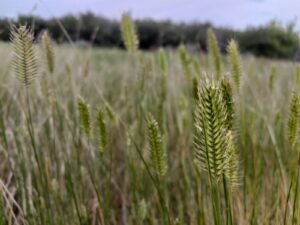🔬 Lab: Antunes Plant & Soil Ecology Lab
📅 Start Date: Winter/Spring 2026
📍 Location: Algoma University (Sault Ste. Marie, ON, Canada)
🌍 Research Focus
Two M.Sc. students will investigate:
- Boreal forest resilience to wildfire, climate change, and invasive species.
- Mycorrhizal symbioses and their role in plant-soil-microbe-songbird interactions.
- Field experiments, molecular ecology, and biodiversity analysis to inform adaptive forest management.
🎯 Key Objectives:
- Assess how disturbances reshape boreal ecosystems at landscape scales.
- Bridge fundamental ecology with conservation policy (collaboration with Ontario Forest Research Institute & Indigenous communities).
- Combine fieldwork, lab techniques, and statistical modeling (e.g., R).
✅ Preferred Qualifications
- 4-year Honours degree in Biology/Ecology (min. 75% average).
- Interest in soil-plant-microbe interactions or disturbance ecology.
- Skills in fieldwork, microbial ecology, or data analysis (assets, not required).
📋 Expectations
- Publish research in peer-reviewed journals.
- Engage with policy-makers and Indigenous partners.
- Present at conferences and contribute to science-policy dialogue.
💰 Funding & Support
- $22,000/year stipend + tuition coverage (domestic rates for U.S. citizens).
- Fieldwork/lab training + networking with leading ecologists (e.g., Dr. Stephen Mayor).
📩 Application Process
Submit to Dr. Pedro Antunes (pedro.antunes@algomau.ca) with subject line:
“M.Sc. Application – Mycorrhizal Ecology – [Your Name]”
Include:
- 📄 CV (with 3 references).
- 📑 Unofficial transcripts.
- 📝 1-page statement (research interests & career goals).
⏳ Rolling deadline—apply ASAP for Winter/Spring 2026!
🌲 Lab & Location Highlights
- Algoma University: Small-campus vibe with boreal forest fieldwork access.
- Collaborators: Ontario gov’t, Indigenous communities, and international networks.
- Lab Culture: Inclusive, policy-engaged, and passionate about soil biodiversity.
Encouraged to Apply: Students eager to blend ecology, molecular tools, and conservation. Questions? Email Dr. Antunes!

Leave a Reply